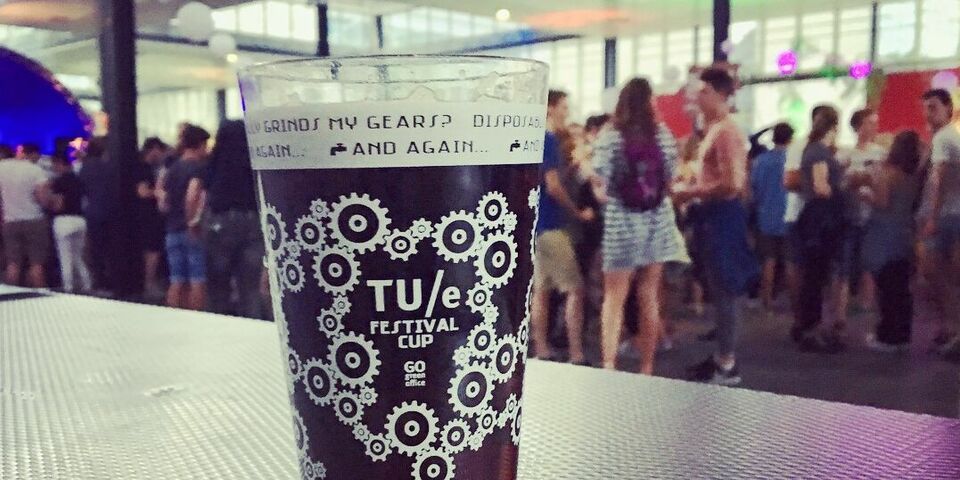GO Green Office wants sustainable student associations
GO Green Office will head a new initiative as of Friday 26 February that needs to encourage student associations to adopt a more sustainable approach to their organizational operations and events. Eleven associations will take part in a pilot during the next four months. After an evaluation, the plan is that more associations will join this Sustainability Managers Project (SUMAP) after the summer vacation.
Quirine Verbeek, Master’s student of Innovation Sciences and Chief Campus within the GO Green Office team, says that the launch of SUMAP was discussed with board members of the associations twice over the last few months.
Verbeek: “The question was how the associations in Eindhoven could increase sustainability of both the campus and the student community with the use of the existing infrastructure.” The first concrete step in this process, she says, was appointing so-called sustainability managers at the eleven participating associations. This won’t be a new position within the board, “but the sustainability portfolio will be added to the tasks of one or two members who already serve on the board,” Verbeek says. “Those board members will be given the extra task of implementing sustainable solutions within their association, and with creating more awareness on this issue. In addition, they will have to try to stimulate the participation of their members in this process.”
Awareness
Does Verbeek have the impression that associations are currently the least bit interested in sustainability when it comes to organizational operations or events? “We at GO Green Office want them to focus on this in the future in any event, and some associations place it higher on their agenda than others, since sustainability features more prominently in their programs.”
SUMAP needs to ensure that each association board will seriously think about sustainability in the future, Verbeek says, “and it also creates a platform where those sustainability managers can share their best practices and problems once a month, and lend a helping hand when possible.” GO Green Office will organize and facilitate this, for example by offering tools manuals, such as providing protocols for organizing events or promoting your association in a sustainable way. But also with training sessions and grants, Verbeek says.
Challenge
The project also includes a challenge, in order to increase its attractiveness, Verbeek says. “We hope that this will further encourage associations in a competitive way to actually take those steps towards more sustainability. Associations can win a certain number of points with each action, and we are still thinking about what the first prize of the competition will be. That’s still a surprise for now.” She can say however that GO Green Office has grants at its disposal for well-argues proposals. The size of those grants is also currently still under consideration, Verbeek says.
Verbeek: “The crux of this initiative is that the strive for more sustainability will be adopted by the members. They, in their turn, will have to spread the message beyond the walls of their association and the campus. It’s about really simple things, like switching of the lights and turning off machines at the end of the day. But if associations were to offer vegetarian meals during their events more often, members might do the same in their own student house.”
Nine study associations, the Eindhoven Studenten Corps and international student association Cosmos will take part in the pilot during the next four months. The kick-off takes place on Friday, February 26. Verbeek says that the plan is to include TU/e’s student teams in this initiative as well in the future.



Discussion